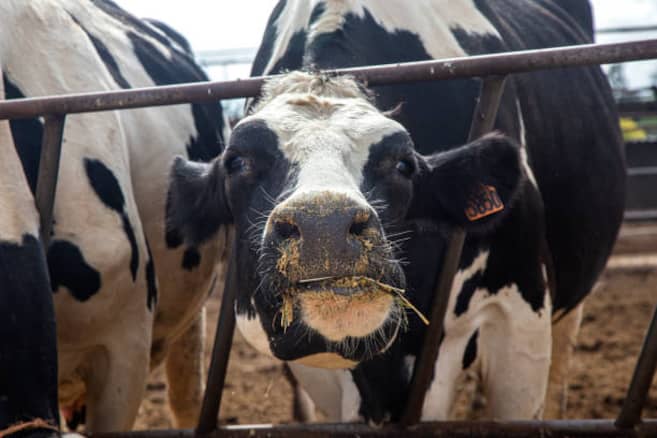The incubation period of the virus in cattle has been observed to vary, from 12 to 21 days. /Getty
Foto: Getty Images – DarioGaona
Covid-19 and bird flu are not fundamentally similar diseases: while the former has already caused a pandemic and has spread to humans, the latter is a disease that primarily affects birds and can occasionally infect humans, but has not caused a global pandemic. Bird flu is transmitted primarily between birds and its impact on humans is more limited and less frequent compared to Covid-19. In addition, the bird flu virus and SARS-CoV-2, which causes Covid-19, are of different types and have different transmission mechanisms and effects on the body. Although they are not comparable, US scientists are concerned about the US response to recent developments involving bird flu.
Avian influenza, specifically H5N1 (which is a highly pathogenic virus, meaning it causes serious and often fatal diseases in birds) was detected a few months ago among cattle and other farm animals in some states in the United States, in an outbreak that had not occurred before.
“Although the threat of an H5N1 pandemic does not appear imminent (this variant has not yet demonstrated the potential to spread from person to person), the initial response of the federal government suggests that, rather than heeding the lessons of COVID-19, elected officials and other key decision makers may be resorting to a dangerous type of revisionism that could lead to more deaths if H5N1 causes a pandemic,” a group of public health experts writes in the New England Journal of Medicineone of the most prestigious medical journals in the world.
The experts note that the country has developed pandemic preparedness plans that have involved institutions such as the National Academy of Medicine, Sciences, and Engineering. “However, despite these plans and warnings, and despite being ranked as the most prepared country among 195 to handle a pandemic in the Global Health Security Index in 2019, when Covid-19 hit, the United States performed terribly by most indicators,” the experts write. They believe that during the Covid-19 pandemic, the country had weaknesses “masked by overconfidence, as some elected officials and political appointees continually assured Americans that the country had “the tools” to adequately respond to this new threat.” Some of those weaknesses, they add, were key in terms of testing and surveillance.
And it is in these two areas that experts believe the country is once again getting it wrong. “Recent genetic analyses suggest that the virus (H5N1) circulated undetected in cattle for months. Because of insufficient testing, the true number of cases among dairy farm and other farm workers is also unknown. As with meatpacking facilities in the early months of the Covid-19 pandemic, the reluctance of dairy farm employers to cooperate with health officials has hampered widespread testing and surveillance,” they write. “In the current political climate, Congress may not be willing to invest billions of dollars in research and development.”
The experts who signed the article also emphasize what they believe has been a lack of coordination between different government agencies, something that, they say, also occurred at the beginning of the covid-19 pandemic. “The threat of H5N1 also arises in a social, political, and fiscal environment less conducive to public health measures than that of early 2020. For example, the ability to rapidly scale up pharmaceutical countermeasures, including vaccines, in the United States may be impaired due to rising anti-vaccine sentiment and litigation, making it riskier for manufacturers to invest in research and production,” they add a few lines later.
“We haven’t really done anything to address what’s happening in terms of the spread of bird flu across the US – we’re just going back to the same old mistakes,” Gregg Gonsalves, an associate professor of epidemiology at the Yale School of Public Health and co-author of the paper, told the Guardian. “Right now, the imminent risk is low and we haven’t seen human-to-human transmission. But the point is, we’re not waiting for that to happen, right?” “We’re all extremely grateful that we’re not stuck in a cycle like 2020, when our hospitals and morgues were overwhelmed and we had no recourse against the virus,” he added later, but “the best way to avoid the pain we’ve felt over the last four years is to be prepared.”


